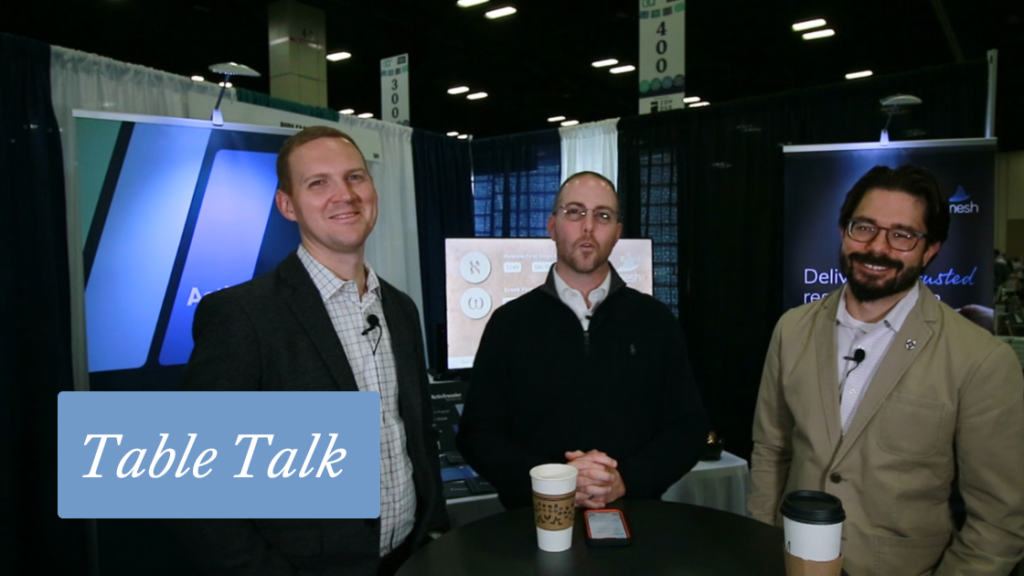The BibleMesh team often attends academic conferences, like we did in the recorded video below. But what is the point of such conferences, and how do we remain focused on forming students in the “Three Greats” when such conferences often seem disconnected or unhelpful for personal faith and serving God’s mission in the world?
In this article, we look at several reasons why academic conferences can be beneficial, as well as offer some thoughts on why they often fall short of this.
Why academic conferences?
Academic conferences are where scholars and attendees gather to wrestle with difficult things in the study of their discipline. Regardless of subject, the calling of Bible-centered scholars is to pay attention to what God has said and to figure out what that means for us today. Therefore, at an academic conference like this the annual meeting of the Evangelical Theological Society, we spend time doing exactly that, encouraging and building each other up in that pursuit of excellence in our research and teaching.
Accordingly, conferences are meant to sharpen scholarship, giving clearer definition to what scholars are supposed to be doing when they instruct on the right interpretation of scripture, why scripture matters for theology, or how this all applies to the church.
At their best, conferences can provide resources for ordinary church members and pastors to be able to engage the text better. They also can provide opportunities for people to work together on their scholarship and sharpen one another.
Conferences are meant to sharpen scholarship, giving clearer definition to what scholars are supposed to be doing when they instruct on the right interpretation of scripture, why scripture matters for theology, or how this all applies to the church.
A gathering of so many people also brings publishers who are producing resources for the academy and the classroom, as well as church members. There are many book ideas that spin out of conversations in these conferences that eventually find their way into a Sunday school class or a classroom via book project or other material. So, if done well, academic conferences like this can help churches engage in theology on Sundays and throughout the week.
These are all worthy aims. Sadly, however, academic conferences can, in reality, fall far short of these aspirations. What might students or future scholars need to be on guard against as they attend such conferences?
What potential pitfalls are found in academic conferences?
First, in scholarship often the newest or most cutting-edge idea is rewarded. The pressure to put forward new or creative ideas that this creates can lead to innovation in doctrine that can produce beliefs that are unhelpful, and potentially even heretical. The very nature of scholarship focusing on the new and cutting edge can untether us from foundational commitments to orthodoxy.
Second, as in any human endeavor, there is a way to pursue it in submission to the authority of God and there is a way to pursue it in rebellion against God. There are those who are interested in the text of the Bible not to serve God, but to undermine God’s word. We must keep our ears, hearts and minds open as we look at the purpose of conferences. Is it pursuing obedience and faithfulness to God or is it undermining God? This is not solely an academic struggle but a human one, as all human endeavors bring temptations.
Third, academic conferences can generate pride and hubris. Sessions can be needlessly heated or all about building up one’s platform and personality. That does not serve the church, and is the opposite of serving the Great Commission, Great Commandment and Great Tradition.
BibleMesh’s partners involved in academic conferences seek to cultivate communities that resist the temptation to pride, but instead focus on giving the Lord glory. We aim to work together with others to celebrate excellent work that serves the church, fosters encouraging scholarly community, and is done in worship to God.
How do academic conferences relate to the Great Commandment, Great Commission and Great Tradition?
With the Great Commandment to love God and neighbor, the church has an obligation to influence what takes place at academic conferences. The church reminds us through its preaching of the word and observation of its sacraments that God’s glory is what we are pursuing. Conferences need to be rooted in that.
At the same time, as we go about our scholarship with the Great Commandment in mind, we can rightly order high quality scholarly development, retrieval from the wisdom of the ages, and engagement with the challenges in the present to that end. This pursuit focuses on the Great Commission by equipping the church to preach the good news of Jesus Christ to the whole world, in every discipline, and in every language.
If we lose sight of our historical heritage and of the faith that has been delivered to us through the centuries, we become unmoored from the confession of the church and the Great Tradition that is confessed in our own context within traditional understanding of the doctrines inherited from scripture. Conferences that are focused on the need for both revival and retrieval, to be historically aware and engaged in our faith with the realities of the present, can serve the church directly regarding the Great Tradition.
BibleMesh are delighted to be co-sponsors, alongside Crossway, of the International John Owen Convention.
June 24-26, Union Theological College, Belfast, Northern Ireland.
